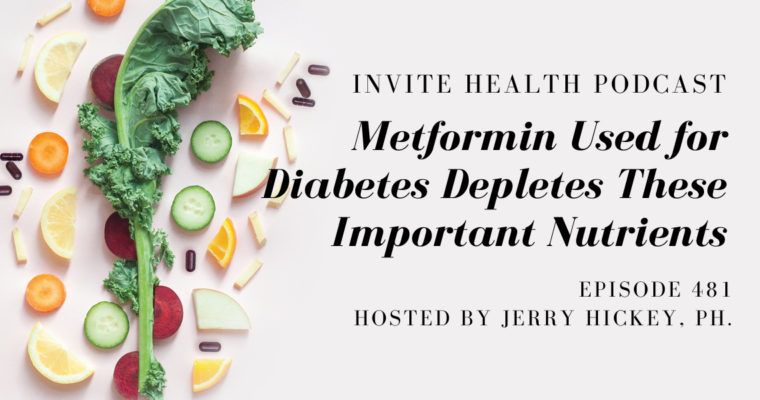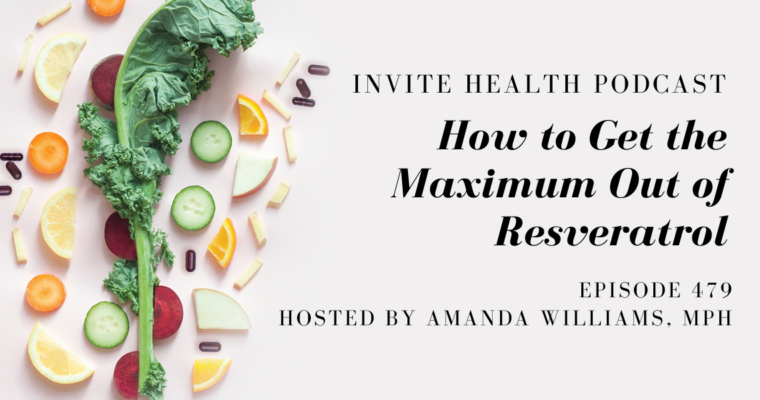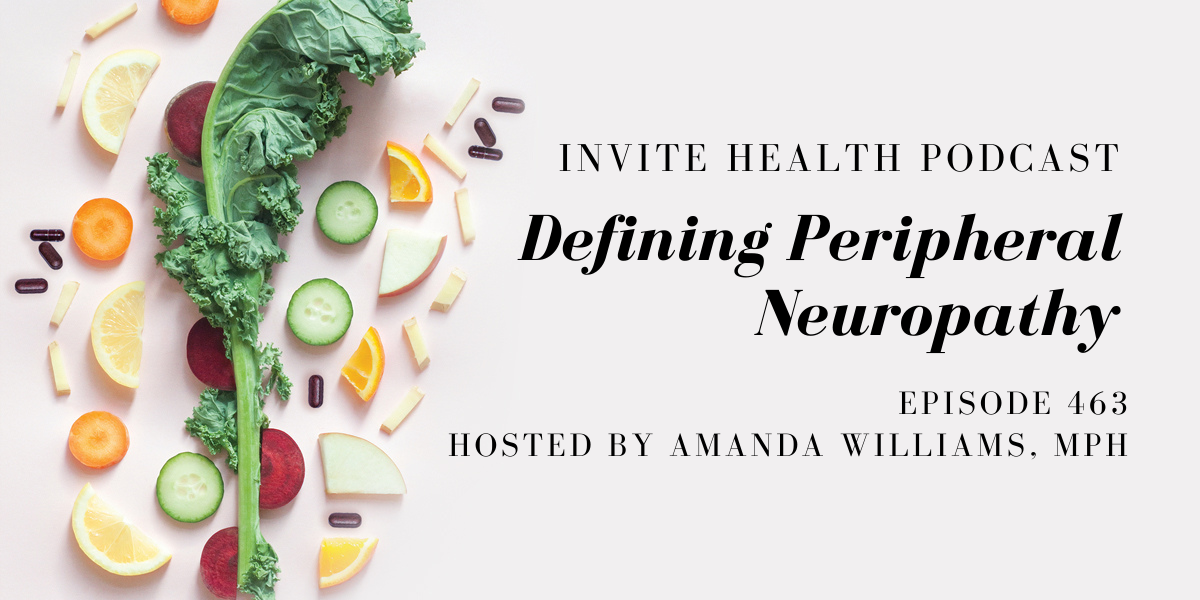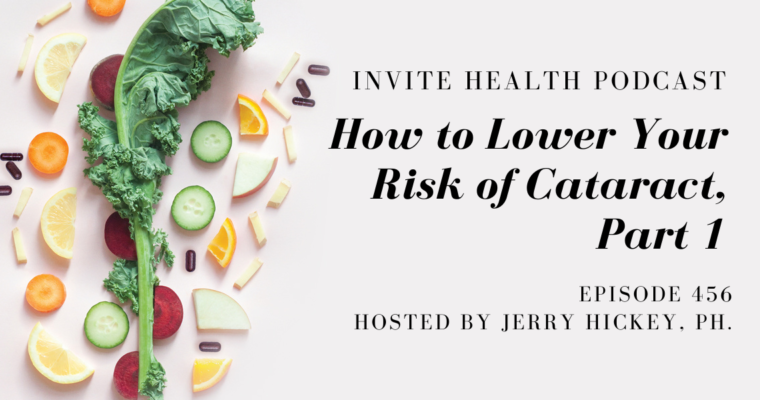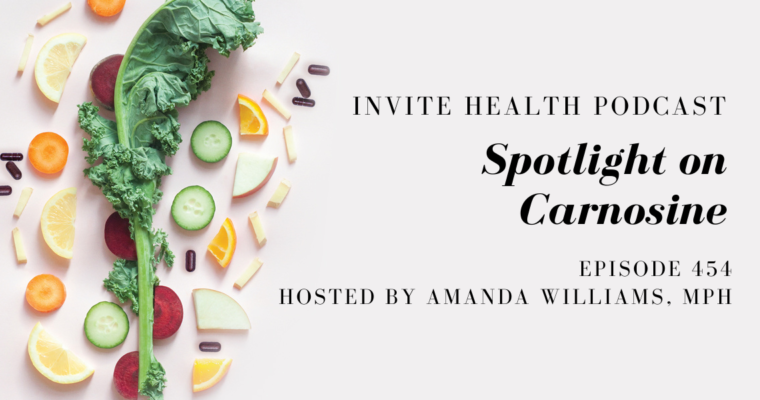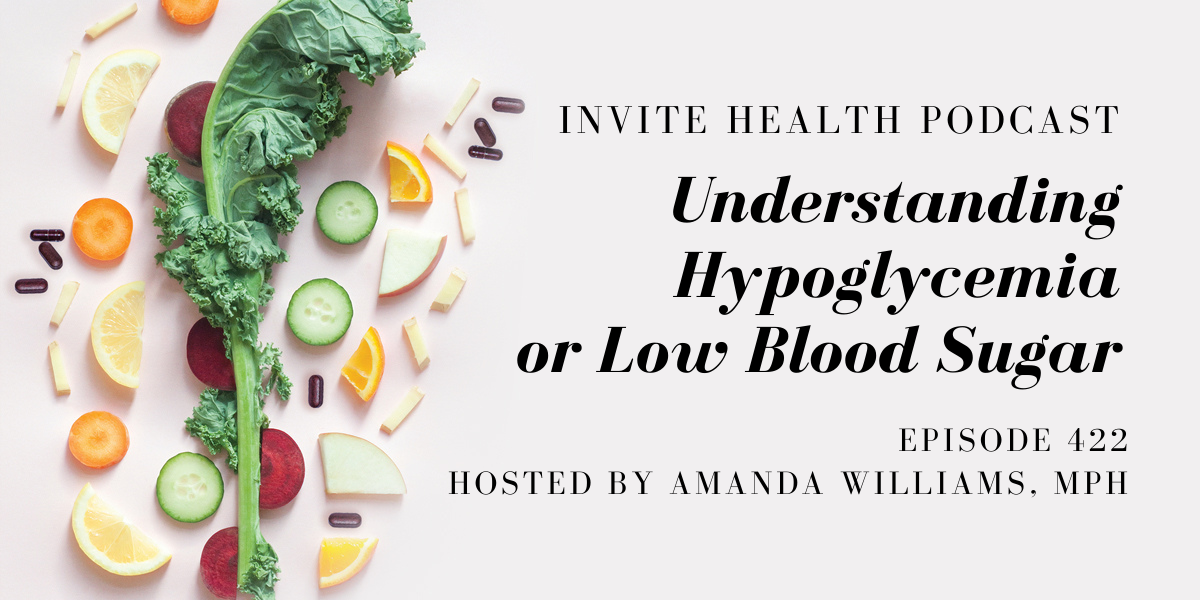peripheral neuropathy
InViteⓇ Health Podcast, Episode hosted by Jerry Hickey, Ph.
Subscribe Today!
You’ve probably heard about diabetic peripheral neuropathy and it is definitely a real thing. The prevalence rate of peripheral neuropathy in diabetics is upwards of 50%. That is a big problem. Generally, this is going to affect the feet, which is why they emphasize so much about diabetic foot care. That’s important, but we want to try to stop ourselves from getting to that point.†
What can lead to peripheral neuropathy?
Peripheral neuropathy is not just solely impacting diabetics. This issue can impact someone who has completely normal blood sugar. This is because there are over 100 different types of peripheral neuropathies. They all have their own symptoms and prognosis. There are different nerves that are implicated with the different forms of neuropathy. When you have neuropathy that affects all different types of nerves, this is when the issues really start to drive home.†
There are a lot of different things that we know can lead to peripheral neuropathy. Physical injury or trauma to a particular bone or area can lead to significant nerve damage, which can then lead to neuropathy. We know that diabetes is the leading cause of any of the polyneuropathies that are reported. This is why we need to look at what we can be doing.†
We can look at vitamin imbalances. If we don’t have adequate amounts of our B-vitamins, like B12 and B6, for example. We can see the neuropathy symptoms kicking into high gear when we have this. We can look at hormone imbalances and autoimmune diseases that can create neuropathies. There are also different medications that can drive up neuropathy, as well as infections such as shingles.†
COLD SORES AND SHINGLES – INVITE HEALTH PODCAST, EPISODE 458. Listen Now>>

How to help with this issue
I want to focus a little bit more on diabetic peripheral neuropathy because it’ll still cross off all of the different spectrums, so even if someone doesn’t have diabetes but they’re experiencing neuropathy, the different nutrients that I’m going to highlight would still be beneficial in those situations.†
We know that our B-vitamins are huge. Having those B-vitamins onboard is really helpful. Benfotiamine, which is found in our Nerve HxⓇ formulation, for me is a number one go-to. Benfotiamine is the fat-soluble form of Vitamin B1 and combining that with the Methyl-B formulation is a really nice one, two punch for helping to enhance nerve function.†
PROTECT YOUR BODY AGAINST SUGAR-INDUCED DAMAGE WITH BENFOTIAMINE – INVITE HEALTH PODCAST, EPISODE 90. Listen Now>>
Glycation is involved in neuropathy and this causes inflammation, so we want to make sure we’re including things like alpha-lipoic acid and acetyl-l-carnitine, which are in our Alcar with ALA formulation, to help fight off this inflammation. We also have to look at common things such as omega-3 fatty acids and Vitamin D.†
In this episode, Amanda Williams, MPH explains the issue of peripheral neuropathy, which frequently affects diabetics. She outlines some common causes of this issue and also offers recommendations for nutrients that can help fight it.†
Key Topics:
- Different types of peripheral neuropathies
- The role nutrition plays in this issue
- How glycation is involved in neuropathy
Thank you for tuning in to the InViteⓇ Health Podcast. You can find all of our episodes for free wherever you listen to podcasts or by visiting www.invitehealth.com/podcast. Make sure you subscribe and leave us a review! Follow us on Facebook, Twitter and Instagram at InViteⓇ Health today. We’ll see you next time on another episode of the InViteⓇ Health Podcast.


